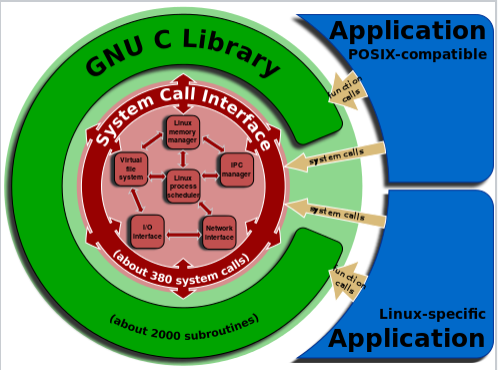-

- Some of these are wrapped by glibc to give us library functions that are easier to use.
- The difference between the two really doesn't matter to me.
- A simple program that allows the user to move around the file system.
- Perhaps the basics of a shell
- The program prints the current directory.
- Then reads in the user's response.
- on QUIT the program exits.
- Otherwise it attempts to change to the directory given.
- Print errors when a problem occurs.
- Notice the include file listed.
- Notice that there are two different forms
- One that takes a const char *
- This is either a relative or absolute path
- But not a ~ path, the shell does this.
- The second takes an int
- This is for a file descriptor, not a path
- Read the descriptions, make sure you understand what they do.
- Notice the return value
- 0 on success, -1 on fail
- This is very common, but not universal
- Pay attention to this.
- errno
- man errno
- This is set by the kernel if an error occurs
- It is NEVER unset.
- Library calls such as cout, could change this as ell.
- Best to do the following
-
if (test for fail on system call) { do something with errno } - Back to this in a bit.
- Back to chdir, look at the errors
- Some of these make sense (EACCESS)
- Some of them are scary (ENOMEM)
- Some will make sense later (ELOOP)
- Last thing to look at here is See Also
- getcwd looks like it might be a system call we want.
- path_resolution is probably some theory, man 7 usually is.
- chroot is more advanced.
- What do you do when you have an error?
- The errno might give you a way to recover
- Or at least print an error message and exit.
- chdir is nice in that it will not change anything on error. No recovery.
- But it is nice to know what the problem is.
- There are several library functions which help
- perror (char *)
- Takes a user supplied message
- And prints the message and the error string.
- Needs <stdio.h> for c
- but I also got away with <string.h>
- strerror
- Will return the error string given the error number.
- <cstring> and <cerrno> for c++
- Use this string immediately or copy it.
- It will be overwritten.
- Do not free this string.
- perror (char *)
- I use make.
- You should too.
- You should ask questions about it now, or any time in the future.